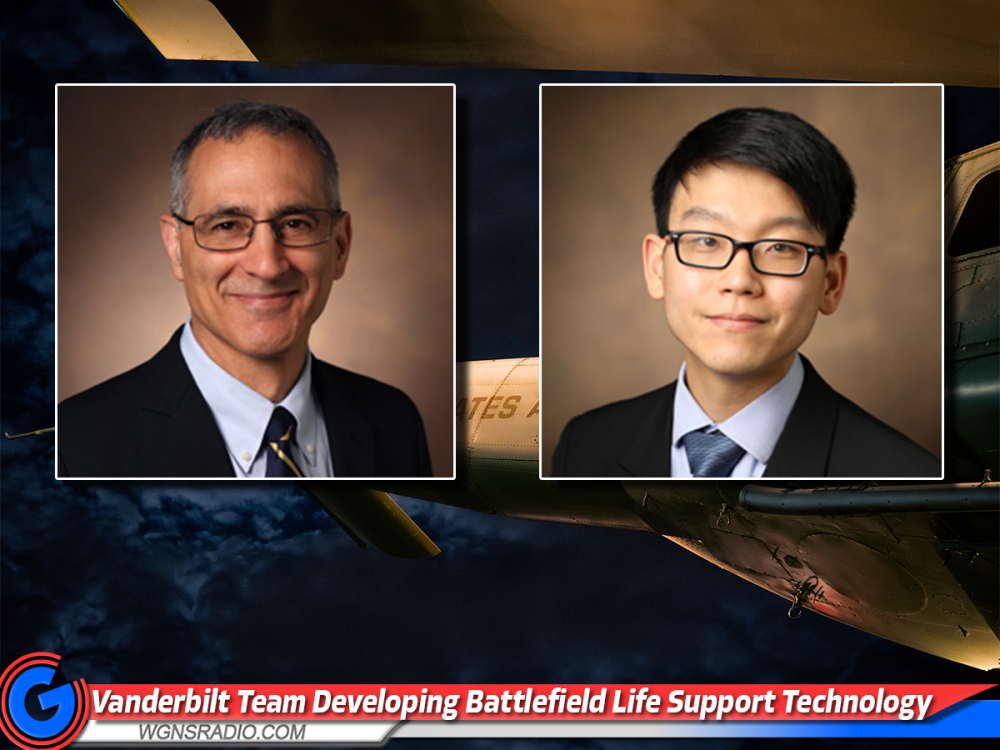Nashville, TN - Investigators from Vanderbilt University Medical Center are part of a national team that has been awarded $18.2 million from the U.S. Department of Defense to develop advanced life support components expected to improve battlefield care for combat-wounded military personnel.
Principal Vanderbilt investigators include Matthew Bacchetta, MD, MBA, and Rei Ukita, PhD, will lead efforts to evaluate the cannula and oxygenator for a novel advanced life support system (ALSS) in a large animal model and to design and develop a prototype of the automated system.
Modern military conflicts can leave soldiers with extensive, traumatic injuries from weapons of war such as improvised explosive devices (IEDs). Battlefield medics often have limited resources, time and expertise to provide life-sustaining, emergency care for those critically injured.
The Innovative Resuscitation and Optimized Novel Multi-organ support with Autonomous ECMO for Non-medical personnel and medics) project will develop the core components of an ALSS-capable device to provide automated resuscitation for soldiers with critical blood loss, as well as delivery and closed loop control of respiratory support via a novel, extracorporeal (outside the body) gas exchange system.
“We are excited for this opportunity to build upon our extensive mechanical circulatory support work in the Laboratory for Organ Regeneration, Recovery and Replacement (LOR3) as we develop the means to support and rehabilitate lungs, hearts, livers and kidneys for transplantation,” said Bacchetta, professor of Cardiac Surgery, Thoracic Surgery, and Biomedical Engineering, and director of LOR3.
Bacchetta is an expert in advanced lung disease and extracorporeal lung support and large animal models of trauma and lung injury. He served in Iraq and Afghanistan and has firsthand understanding of the needs of the injured warfighter, including using ECMO in austere combat environments. He currently serves as surgical director of the Vanderbilt Lung Institute which oversees patient care and research for advanced lung disease.
Ukita is research assistant professor in Cardiac Surgery and Biomedical Engineering at VUMC and is an expert in biomedical engineering, membrane oxygenators, and use of large animal models to investigate medical devices and complex cardiopulmonary physiology. For this project, he will co-direct the development of resuscitation and lung support control strategies.
The project, funded by a 2.5-year grant from the U. S. Defense Advanced Research Projects Agency (DARPA), is expected to establish the technical foundation for the future miniaturization and manufacture of a complete system prototype for trials. The end goal is the deployment of easily transportable advanced life support devices for frontline troops. The devices are expected to be easy to use, without the need for substantial medical training.
Ukita noted, “This automated resuscitation/oxygenation technology will be impactful for providing lifesaving therapy not just for injured soldiers but also to civilian patients in low resource settings. It would also be impactful in the event of a mass casualty or a surge of respiratory disease cases, during which there is a need to provide critical care for many patients at once.”
The project team is comprised of investigators from leading academic institutions and industry who have deep experience in the creation, development and clinical use of medical devices and extracorporeal life support technology. Johns Hopkins School of Medicine serves as the lead institution and administrative core facility.





